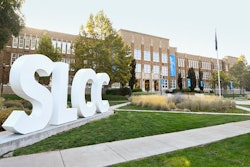Despite meager resources, tribal colleges and universities (TCUs) are actively working to revitalize native languages and culture, promote tribal sovereignty and further economic growth aligned with tribal values in the communities they serve.
That’s the findings of a new report titled “Redefining Success: How Tribal Colleges and Universities Build Nations, Strengthen Sovereignty, and Persevere Through Challenges,” released by the Center for Minority Serving Institutions at the University of Pennsylvania.
Dr. Marybeth Gasman, director of the center, said that the report builds on the research of native scholars and tribal college organizations that have advocated so vehemently for these institutions.
“Tribal colleges are undervalued and all too often critics only see them through mainstream lenses,” said Gasman. “Tribal colleges have unique missions that reach way beyond most institutions of higher education to tribal communities, regional communities and families. These unique missions and contributions have be to valued and discussed when having conversations about tribal colleges.”
Though TCUs often operate under the radar screen and are grossly underfunded, they have grown to include 37 institutions that now serve more than 28,000 American Indians and Alaska Natives (AIAN), including both single and mixed-race individuals.
Still, Ginger Stull, program coordinator of the executive doctorate in higher education management program in the Graduate School of Education at the University of Pennsylvania and the lead author of the report, said that she was most surprised by how TCUs are able to do so much with so little resources.
“When you think about TCUs receiving about $3,000 in federal support per AIAN student per year, and no support for non-AIAN students, and then think about all the programs and services they provide, it really is astounding,” said Stull. “A mainstream institution would probably close their doors or hike up tuition, but TCUs have managed to keep tuition low. It truly speaks to the commitment of the faculty and staff at these institutions. I think you see much more of a dedication to community and public needs at TCUs than you do at mainstream institutions. “




















